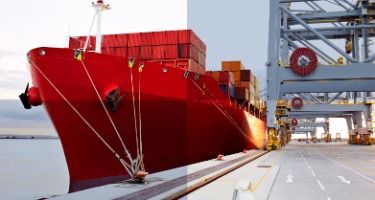Maritime activity, unless coastal or inland, is by its very nature international; and so too is the business of shipping.
A Shipowner, founded in Norway, orders ships to be built by a Chinese shipyard. It meets Engine Manufacturers and receives statements on fuel consumption, on which it relies to direct the shipyard to order engines for the ships. The shipyard orders the engines and receives further statements on fuel consumption in China from the Engine Manufacturers which it passes on to the Shipowners. In due course, the Shipowner then visits the Engine Manufacturers at their factory in Germany for engine trials and approved the engines for installation. The engines are installed on the ships in China. Over the course of several years, the Shipowner moves the registered ownership of the ships from the Cayman Islands, to Hong Kong, and finally to Singapore to take advantage of Singapore’s tax incentives for shipowners. The Shipowner then finds evidence that suggests that the engines supplied by the Engine Manufacturers and installed on the ships did not consume fuel at the rate stated by the Engine Manufacturers, and that it has suffered substantial loss and damage over the years in fuel expenditure. The Shipowner now seeks to make a claim against the Engine Manufacturers in Singapore, where its shipping business was controlled and managed for the majority of the years in which loss and damage was incurred. The Shipowner commenced Singapore proceedings, obtained permission to serve process on the Engine Manufacturers in Germany, and duly served them in Germany.
These are the basic facts of the Shipowner’s claim which exercised the Singapore High Court’s mind in the recent case, IM Skaugen SE and another v MAN Diesel & Turbo SE and another [2018] SGHC 123, where the Engine Manufacturer applied among other things for the Singapore court to stay the Singapore proceedings on the ground of forum non conveniens, that is to say, on the ground that Singapore was not an appropriate forum for the Shipowner’s claim. The main areas of consideration had to do with:
- the weight to be given to traditional considerations of locality of physical documents and locality of witnesses in today’s modern business world, where digitised electronic communication has become the norm and where international travel is relatively convenient, and
- whether the existence of the Singapore International Commercial Court (SICC) with its international judges from both civil law and common law countries, and with its flexible procedures designed to transcend differences in procedure, would be a countervailing factor against any concerns that the substantive claim was to be determined by a non-Singaporean law best determined by that law’s indigenous court.
As to documents and witnesses, the Singapore High Court determined that the need to call witnesses resident in Germany and the German location of some of the documents did not weigh against Singapore being an appropriate forum. It observed that video-link technology had rendered the physical location of witnesses an immaterial consideration, where there was no suggestion that such witnesses would be seriously inconvenienced by travel. Neither was the need for documents to be translated material, when seen in the wider context of the lingua franca of the parties being English and the English-speaking forum of Singapore. The Singapore High Court did think that data protection issues in documents that arose from the law of a particular country might need to be considered if they gave rise to substantial inconvenience to Singapore litigation. On the facts of the case, though, this was not regarded to require consideration.
With regard to the SICC issue (for Starboard’s previous report on the SICC, see this link), the Singapore High Court held that the availability of the SICC favoured Singapore as the more appropriate forum to hear the dispute. Crucially, this case, where the factual and legal connections are distributed across jurisdictions as diverse and geographically divided as Norway, Germany, China, Hong Kong, and Singapore, was the archetypal dispute which might be better dealt with by an international panel of judges than by the judges of any one jurisdiction. The Singapore High Court was also of the view that the applicability of foreign law to the substantive claim would carry less weight in the assessment of forum non conveniens if the Singapore courts, through international judges in the SICC, were familiar with and adept at applying the said foreign law.
In determining whether the Singapore courts are or are not forum non conveniens, the task is to “identify the forum in which the case can be suitably tried for the interests of all the parties and for the ends of justice”. This case emphasises the importance of not only considering all relevant factors and circumstances but of determining with skill and accuracy the appropriate importance to give to each of the factors or circumstances in current times and faculties.
Dentons Rodyk represented the claimant shipowner in its successful appeal in IM Skaugen SE and another v MAN Diesel & Turbo SE and another [2018] SGHC 123, against the decision of a lower Singapore court to refuse to exercise jurisdiction over the claim IM Skaugen SE and another v MAN Diesel & Turbo SE and another [2016] SGHCR 6.”



















